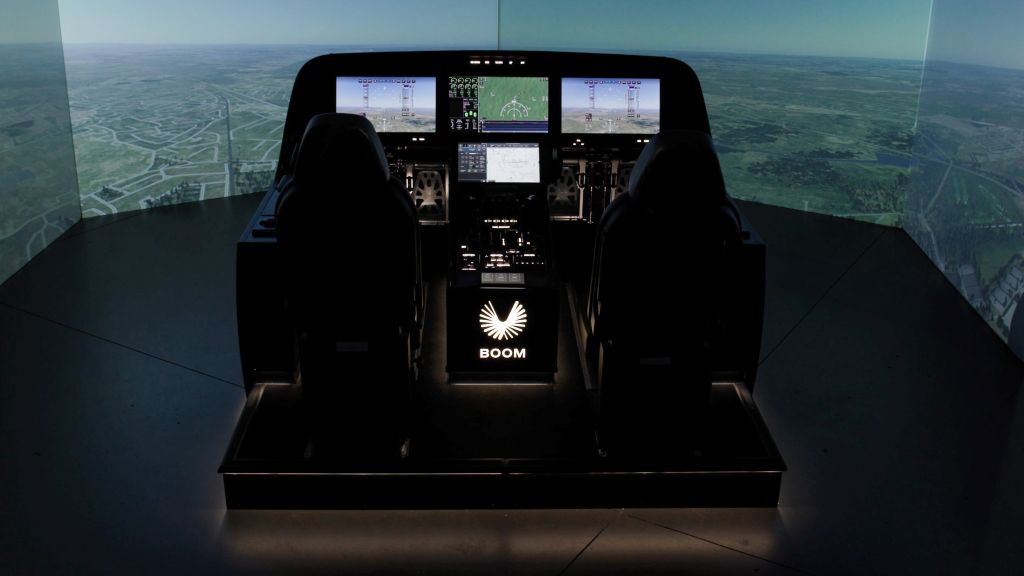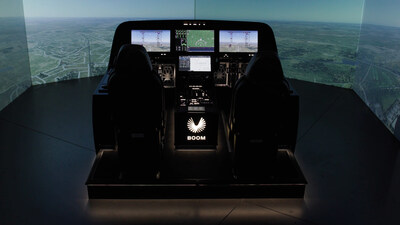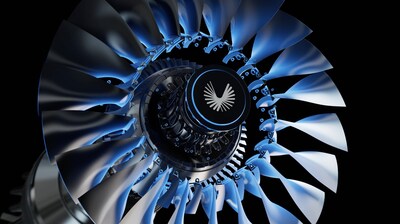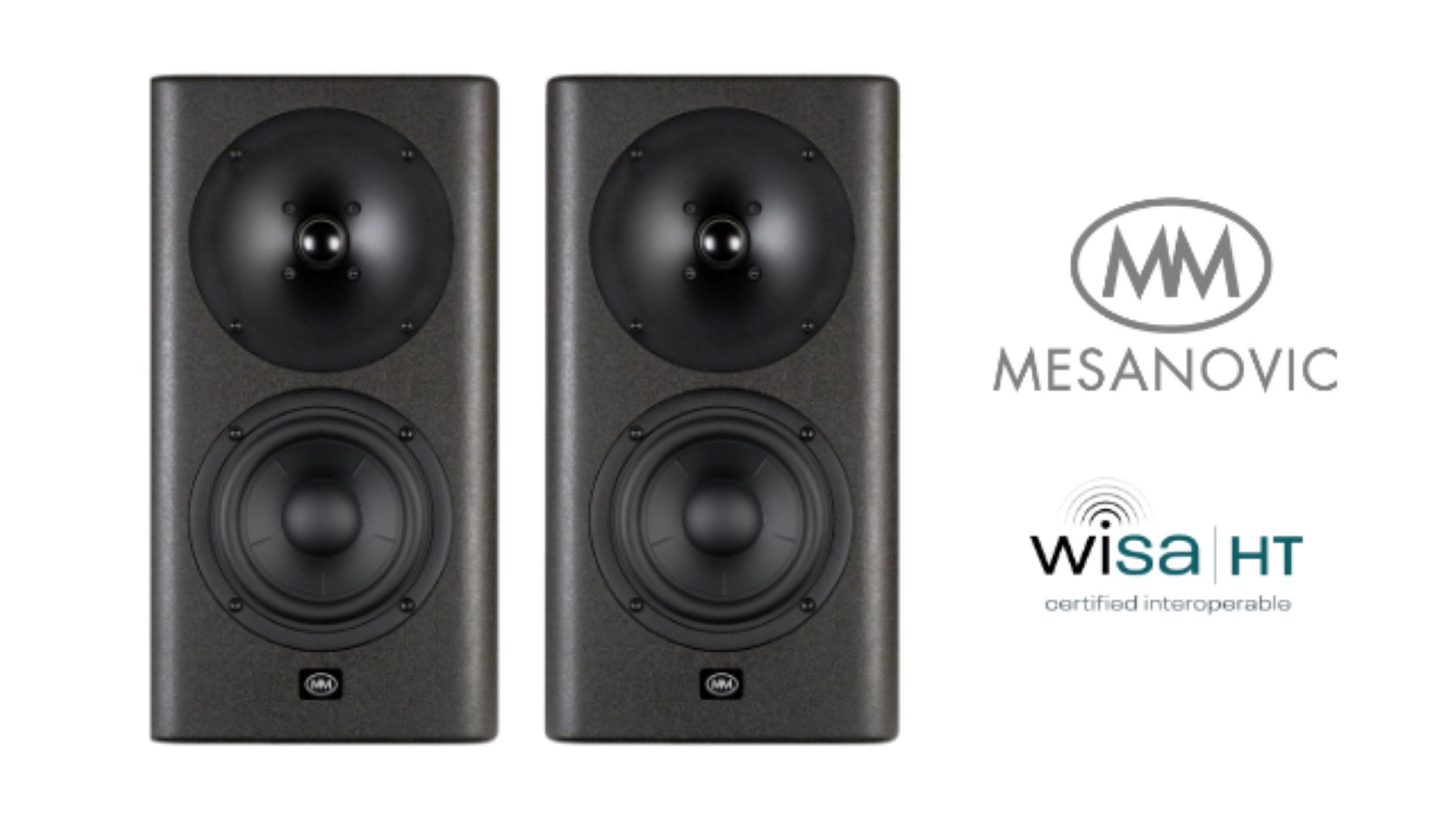Boom Supersonic Accelerates Overture Aircraft and Engine Development

Boom Supersonic, the company building the world’s fastest airliner, today announced milestones across its Overture airliner and Symphony engine programs at the Farnborough International Airshow. Boom is reinventing the cockpit with an all-new flight deck, designed around pilots with safety at the forefront. Boom is making rapid progress on its Symphony engine, with hardware testing underway and the first full-scale engine core to be operational in just 18 months. Additionally, Boom announced that Symphony will be assembled in San Antonio, Texas through an expanded agreement with StandardAero.


Today’s announcements come on the heels of accelerating momentum for Boom. In March, the company conducted the historic first flight of its XB-1 supersonic demonstrator and in June completed construction on the Overture Superfactory in Greensboro, North Carolina.
“Passengers and airlines are hungry for supersonic flight,” said Blake Scholl, founder and CEO of Boom Supersonic. “Following XB-1’s successful test flight, we’re accelerating. Overture features an all-new flight deck, incorporating extensive pilot feedback, resulting in a flying experience that is both innovative and instantly familiar. Our Symphony engine has quickly progressed through design into hardware rig testing, and with a fully operational engine core on track for next year, our rapid development approach is pacing ahead of schedule.”
Boom continues to partner with airlines and best-in-class industry suppliers. Overture’s flight deck builds on the next-generation Honeywell Anthem avionics suite. An advanced head-worn vision system from Universal Avionics, who joins the Overture program today, is integrated into the flight deck. Boom worked with BAE Systems to integrate Active Control Sidesticks into the Overture flight deck simulator displayed at the Farnborough International Airshow.
Boom reinvents the cockpit with an all-new flight deck
Overture’s flight deck builds upon years of learning in aviation safety and is the result of extensive feedback from airline, business, and military pilots. Incorporating the Honeywell Anthem avionics suite, Overture offers pilots unprecedented situational awareness and ease of control, providing passengers with the safest possible flight experience.
Boom’s flight deck offers pilots the benefits of advanced automation and envelope protection, together with a force-feedback system that allows pilots to feel how the airplane is flying. With key airplane features accessible through high-definition touch screens, Overture can benefit from ongoing over-the-air software upgrades. Overture flight deck capabilities include:
- Force-feedback sidesticks. For the first time on an airliner, force-feedback sidesticks allow pilots to control the plane while physically feeling both aircraft response and inputs made by the co-pilot or autopilot.
- Autoland and augmented reality. Building on the system flown on XB-1, Overture has an advanced augmented reality vision system for takeoff and landing, eliminating the need for the droop nose used on Concorde. Pilots can safely land using autoland or augmented reality views provided on a head-worn device and on the pilot’s primary flight display.
- Large 17-inch touchscreens. High-definition touchscreens eliminate the hundreds of breakers and buttons found in legacy cockpits. Every airplane function is accessible through software while physical controls—such as stick, throttle, and landing gear—are offered for safety-critical functions.
- Over-the-air upgrades. Overture will receive over-the-air software upgrades, meaning new features and improvements will arrive regularly. Airlines can control how upgrades are rolled out across fleets.
Boom recently completed a series of flight deck tests with commercial pilots from leading airlines, including Mike Bannister, former Chief Concorde Pilot for British Airways.
“I’ve long believed that Overture is the rightful successor to Concorde,” said Mike Bannister, former Chief Concorde Pilot for British Airways. “After experiencing Overture’s flight deck, which is incredibly well designed and delightful to fly, my excitement and enthusiasm for this aircraft has only intensified.”
Symphony engine advances to hardware testing; engine core to be operational in 18 months
Boom revealed in June that it is already building and rig-testing Symphony hardware, starting with a full-scale test of combustor aerodynamics. The first 3D-printed parts have been produced for Symphony, including fuel nozzles and turbine center frames.
These hardware tests began just 18 months after the initial announcement of Symphony, demonstrating Boom’s rapid development approach. As part of this strategy, the company will conduct more than 30 engine hardware rig tests, allowing for validation and optimization of all key engine components, ranging from fan and nozzle acoustics to combustor fuel efficiency.
Boom also announced that it has accelerated development of a full-scale engine core, which will be operational in late 2025. Engine core testing will analyze performance of the compressor, combustor, and turbine section. Data gathered will further refine engineering and expedite production of a fully certified engine. Following this rapid development approach, Boom expects to build and test multiple iterations before certifying the final refined engine.
Boom also expanded its existing MRO partnership with StandardAero to include the production of Symphony. StandardAero will assemble and test Symphony engines at its facility in San Antonio, Texas. The Symphony assembly line will scale to produce 330 engines annually within a footprint projected to total over 100,000 square feet of production space.
“We are excited to expand our role to include the assembly and testing of Symphony engines, further supporting the development of next-generation flight with Boom,” said Russell Ford, Chairman and CEO of StandardAero. “Our collaboration is a testament to StandardAero’s world-class engineering capabilities and dedication to delivering solutions that power the future of air travel.”
Additionally, Boom announced it is teaming with aerospace leader ATI, Inc. for advanced high-temperature materials and components for Symphony’s high pressure compressor integrated blade and disk stages and for its turbine assembly. These advanced nickel-based superalloys will enable Symphony to achieve high performance and reliability in sustained supersonic operation.
Overture remains on target to achieve FAA and EASA certification by the end of the decade.
About Boom Supersonic
Boom Supersonic’s mission is to make the world dramatically more accessible through flights that are faster, more affordable, more convenient, and more sustainable.
Boom is developing Overture, the world’s fastest airliner, optimized for speed, safety, and sustainability. Overture will fly at twice the speed of today’s airliners and is optimized to run on up to 100% sustainable aviation fuel (SAF). Overture’s order book stands at 130 aircraft, including orders and pre-orders from American Airlines, United Airlines, and Japan Airlines. Boom is working with Northrop Grumman for government and defense applications of Overture. Suppliers and partners collaborating with Boom on the Overture program include Aernnova, Aciturri, Collins Aerospace, Eaton, Honeywell, Latecoere, Leonardo, Safran Landing Systems, Universal Avionics, and the United States Air Force.
Symphony™ is the purpose-built turbofan engine that will enable supersonic flight. The Boom-developed engine is supported by world-class suppliers including Florida Turbine Technologies (FTT), a Kratos company, Colibrium Additive, and StandardAero.
XB-1 is Boom’s technology demonstrator aircraft and the world’s first independently developed supersonic jet. The aircraft first took flight in Mojave, CA in March 2024. For more information, visit https://boomsupersonic.com
Photos and video available at https://boomsupersonic.com/newsroom/media-assets
Connect with Boom Supersonic on X, LinkedIn, Facebook, Instagram, YouTube




